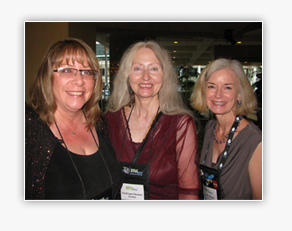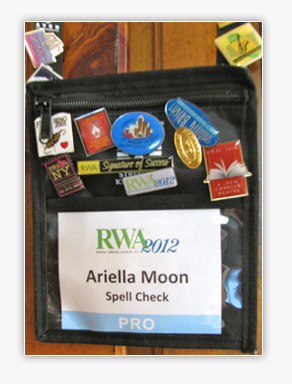|
June 2013 
RWA National 2012.L-R, authors Sherry Ewing, Carol Lynn Stewart, and Ariella Moon Writing Conferences: Newbie Dos and Don’tsWriting conferences present a fabulous opportunity to network, improve your craft, and advance your career. I met my first agent at a Romance Writers of America national conference. A senior editor I pitched to at a Pacific Northwest Writers Association annual conference took my manuscript to acquisitions. (Where, alas, it was ultimately turned own.) To this day I treasure friendships that were forged over a decade ago at my first RWA national conference and at a Society of Children’s Book Writers and Illustrators annual conference. At writing conferences, personal and professional opportunities abound. Here is how you can maximize your conference experience: Things to Do Now:Prepare
For Spell Check:Two girls, one guy, and a Spell Book—What could possibly go wrong? For Spell Struck:What if the one person who saw through your lies and loved you, harbored a secret that could cost you everything?  Dos During the Conference:
Don’ts During the Conference
Dos and Don’ts Post Conference
Every time I attend a writers’ conference I walk away with something – a new way to improve my writing – new friends and contacts – valuable information – or a recharged focus on my writing. Follow the above tips and you’ll have a terrific conference experience! |











